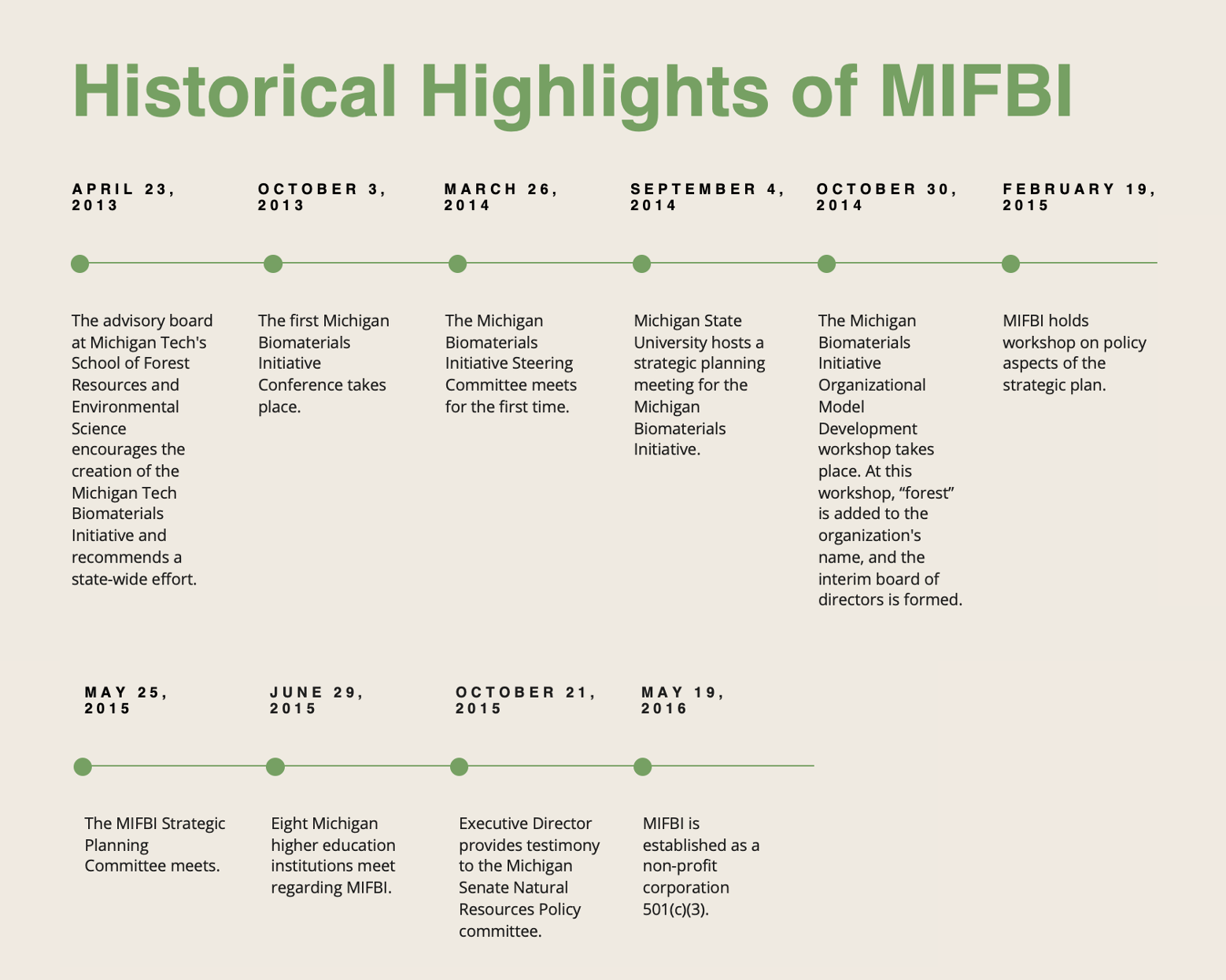
MIFBI provides education and innovative services that foster the forest bioeconomy. We are a growing coalition of stakeholders across industry, academia, and government dedicated to the responsible and sustainable utilization of forest biomaterials for an improved quality of life in Michigan.
We define forest biomaterials as any organic materials that are grown in and extracted from forest ecosystems. While “traditional” wood products hold tremendous value as a forest biomaterial, there exists a wide range of possibilities including non-timber forest products.
The full value of our forest resources is still unknown and complex social, technological, and ecological challenges wait to be resolved. However, communities and businesses can (and many have) already engage in the bio-based economic sector, as there is an array of commercial product and process technologies currently available. A sustainable future will not emerge spontaneously and it will not be based on non-renewable resources. We will need to strive toward our sustainable future and wise use of our forests is a fundamental part of the answer.
Mission
To catalyze innovation and use of materials from forests for a healthy economy and environment
Vision
A carbon-neutral Michigan advanced by a sustainable forest economy
History
Below are the historical highlights of MIFBI. However, it should not be lost to history the resolved leadership provided by Dr. Terry Sharik, the Dean of the School of Forest Resources at Michigan Tech. Dr. Sharik’s instigation of the efforts that became MiFBI was motivated by a deep caring for the future of Michigan’s forests, communities and Michigan’s need to achieve the highest and best use of materials extracted from the forest.
Paramount to the existence and success of MIFBI are the contributions of many organizations and many hundreds of people who have a stake in our forests and the future of Michigan who came together and contributed to the development and vision of MIFBI. In particular are the founding members of the board of directors, who all volunteered a tremendous amount of time and resources to join many conference calls and out of town meetings to carry on the effort that was kicked off in Traverse city in 2013.
MIFBI still faces tremendous challenges to achieve its ambitions goals and vision, and continues to trust the dedication of those who contribute and strive to improve the quality of life in Michigan.









